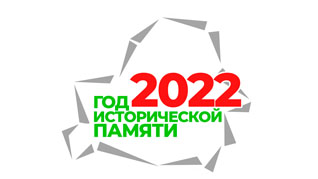Information on the need for social (physical) distancing during the coronavirus infection
In order to prevent COVID-19 infection, it is reasonable to comply with basic preventive measures that can significantly reduce the risk of infection – in particular, social (physical) distancing, masking, hand hygiene, respiratory etiquette, vaccination, etc.
Taking into account the current epidemiological situation, the Comprehensive Plan of Sanitary and Anti-Epidemic Measures, aimed at preventing the emergence and spread of COVID-19 infection in the city of Minsk, was approved by the decision of the Minsk City Executive Committee dated 07.04.2020 No. 1069 (as amended by the decision of the Minsk City Executive Committee dated 12.11.2020 No. 3674).
Along with a number of sanitary and anti-epidemic measures, heads of consumer services, hotel business, trade, catering, social services, organizations providing postal services, public transport (road, rail), including the metro, as well as city life support services and other organizations of all forms of ownership that provide social services were instructed to ensure the observance of social (physical) distancing (marking that allows establishing a safe distance between consumers of at least 1-1.5 m, posting information about the need to maintain a safe distance). It is recommended for consumers of social infrastructure, household services, retail trade, public transport (road, rail), including the metro, and other organizations to maintain a distance of at least 1-1.5 m. when visiting these facilities, organizations and other public places.
What is social distancing?
Social distancing (or physical distancing) is a complex of non-drug sanitary and epidemiological measures aimed at stopping or slowing the spread of an infectious disease by increasing the physical distance between people and reducing the number of close contacts. To keep social distance, a person should be at least one and a half meters from other people and avoid crowds. This rule must be observed by everyone, regardless of the presence or absence of disease markers or contacting patients with coronavirus infection (COVID-19).
WHO has suggested using the term "physical distancing" as preferred during the COVID-19 pandemic, since the physical interruption of infection transmission is paramount. Physical distancing measures are most effective in suppressing diseases spread by airborne droplets (coughing, sneezing), indirect physical contact (through contaminated objects or surfaces) and in an aerogenic way (if microorganisms can survive in the air for a long time).
The implementation of the Comprehensive Plan of Sanitary and Anti-Epidemic Measures, aimed at preventing the emergence and spread of COVID-19 infection in the city of Minsk, made it possible to improve the sanitary and epidemiological situation in Minsk, significantly reduce the incidence of coronavirus infection and showed its effectiveness.
Social distancing recommendations are:
- Avoid contact with people who have symptoms of a respiratory infection (cough, sneezing, fever, etc.).
- Do not use public transport unnecessarily, especially during peak hours.
- Work remotely from home if possible.
- Avoid large crowds in public places such as cinemas, theaters, restaurants, cafes, bars, etc.
- Communicate with friends and relatives using remote technologies (telephone, Internet and social networks).
- Use your phone or online services to call a doctor and other necessary services.
Take care of yourself and your loved ones! Be healthy!





































